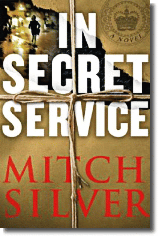About the book, from the publisher:
Visit Christine Kenneally's website.A compelling look at the quest for the origins of human language from an accomplished linguist
Language is a distinctly human gift. However, because it leaves no permanent trace, its evolution has long been a mystery, and it is only in the last fifteen years that we have begun to understand how language came into being.
The First Word is the compelling story of the quest for the origins of human language. The book follows two intertwined narratives. The first is an account of how language developed — how the random and layered processes of evolution wound together to produce a talking animal: us. The second addresses why scientists are at last able to explore the subject. For more than a hundred years, language evolution was considered a scientific taboo. Kenneally focuses on figures like Noam Chomsky and Steven Pinker, along with cognitive scientists, biologists, geneticists, and animal researchers, in order to answer the fundamental question: Is language a uniquely human phenomenon?
The First Word is the first book of its kind written for a general audience. Sure to appeal to fans of Steven Pinker’s The Language Instinct and Jared Diamond’s Guns, Germs, and Steel, Kenneally’s book is set to join them as a seminal account of human history.










































